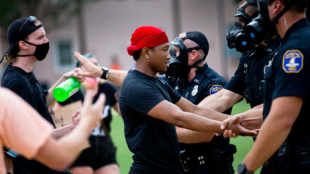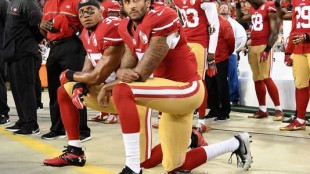Violations Without Vindication: How the Supreme Court’s Decision in Nieves v. Bartlett Permits Retaliatory Arrests and Threatens to Undermine the Fight For Racial Equality
(Source) In May 2019, the Supreme Court handed down its decisions in Nieves v. Bartlett. For the most part, the decision flew under the radar, garnering little media attention (with some exceptions). However, this seemingly innocuous Supreme Court decision now threatens to undermine what has been described as “a defining moment in the future of American politics” and a “turning point against police brutality”—the George Floyd protests. As a general matter, the Constitution prevents the government from retaliating against an individual for exercising her constitutional rights. As a recent example, President Donald Trump’s former lawyer, Michael Cohen, was released from prison after a judge determined Cohen’s house arrest was revoked as punishment for writing a tell-all book about Trump. Since Cohen had a First Amendment right to write a book about Trump, the government could not retaliate against him for writing it. Likewise, a police officer violates the First Amendment when she arrests an individual because she dislikes his speech—known as a retaliatory arrest. But what does it matter if the officer violates the First Amendment when there are no consequences? One incredibly important remedy is to sue the officer under 42 U.S.C. § 1983. Section 1983 allows victims of [read more]




